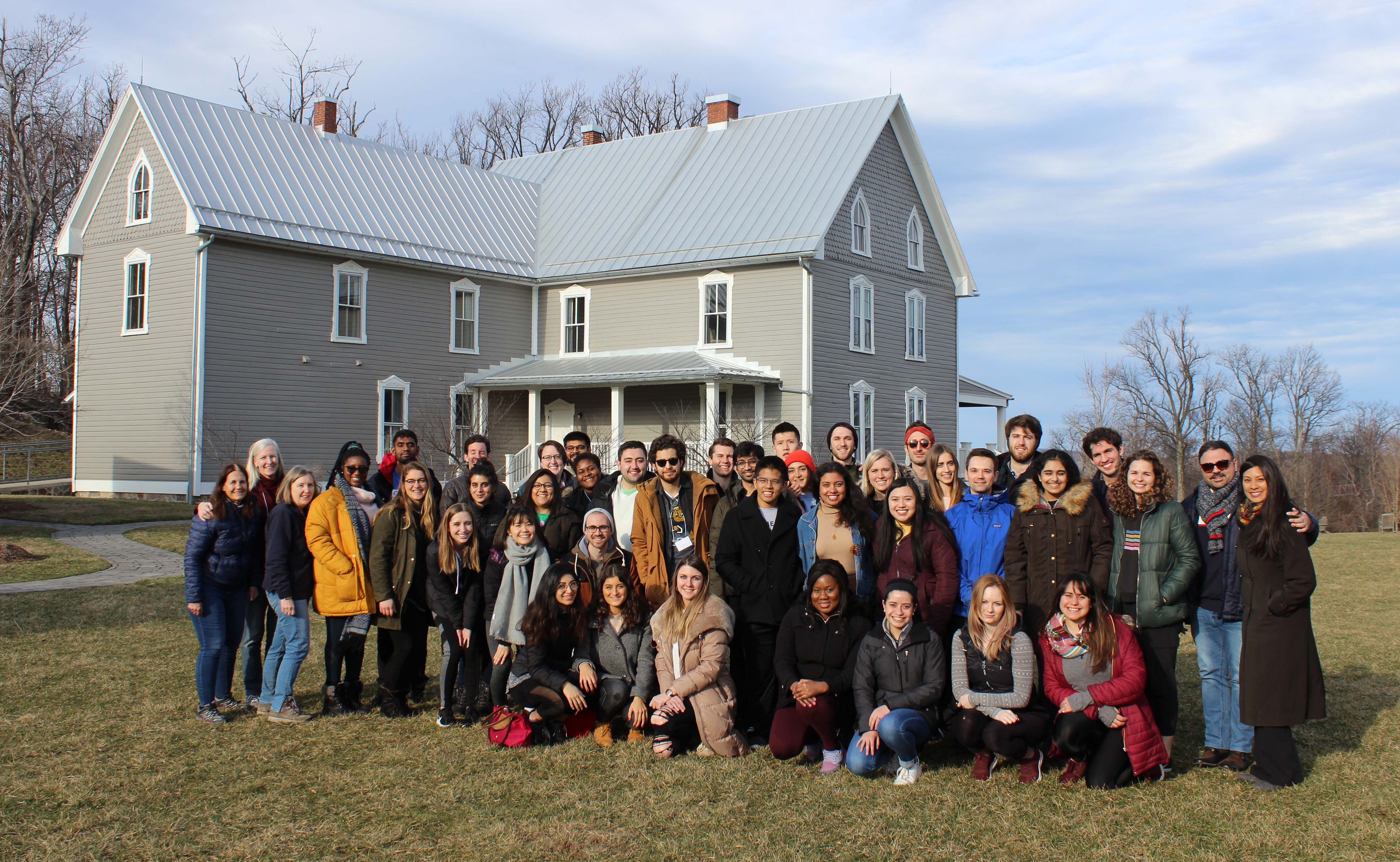Making Intentional Time and Space
During my undergraduate years at Boston College, I majored in theology and participated in many Campus Ministry retreats and service opportunities. Although Georgetown University is similarly a Jesuit, Catholic institution, I didn’t quite know what to expect from my first retreat in graduate school.
Now about six months into my master’s program, the biggest difference between my undergraduate and graduate experiences has been how I make time and space for myself. In my haste to make the most of my time at Georgetown, I tend to incessantly preoccupy myself with my school work, my part-time job, or getting ahead in my career search—to expend my energy making pocket money and boosting my resumé. I often feel guilty that every moment at Georgetown is a waste of time or a lost opportunity if not used productively for these ends.
Spending 24 hours last weekend at the beautiful Calcagnini Contemplative Center in Blue Ridge, Virginia provided the space away from my busy life in DC to connect with new friends and reconnect with my faith life. The retreat offered me the much-needed hospitality, or intentionally unfilled space, for me to get back in touch with my relationship with God. For me, this happens through prayer, but also just as importantly through conversation with others. I both cherished and realized how much I missed sharing rich conversations with peers, many of whom have completely different interests and career goals than I have.
One conversation I particularly enjoyed with another student was about how graduate students tend to make very planned and regimented schedules in order to be successful. I believe efficient time management and productivity are indeed essential for success in any endeavor. However, we also both agreed that a regimented schedule does not necessarily need to conflict with an intentional spiritual lifetime that involves both space for personal prayer and social time with friends. Therefore, living an intentional faith life does not necessarily mean being unproductive, but rather creating the opportunity to encounter God in unfilled time and space that allows my filled time to be spent more intentionally.
I also believe the retreat reinvigorated my spiritual connection with St. Ignatius, especially the Ignatian terms of indifference and discernment as I try to deeper understand my life’s calling. In my master’s program named Communication, Culture, and Technology, I study the intersection of digital media and child development. I no longer directly study theology, so it has been easy to feel that my faith is not an integral part of my life, even at a Jesuit, Catholic institution. However, this retreat reminded me that my faith is important to me regardless of what I do or who I become, not something to be compartmentalized for special occasions.
Back in my daily routine as a graduate student, I feel it difficult to retain the sense of clarity and peace I felt in Virginia. However, if I can prioritize one daily exercise, it is remembering to intentionally make time for conversation with others and with God.
by Nicholas Genovese
Nicholas is a master’s student in the Communication, Culture, and Technology program
